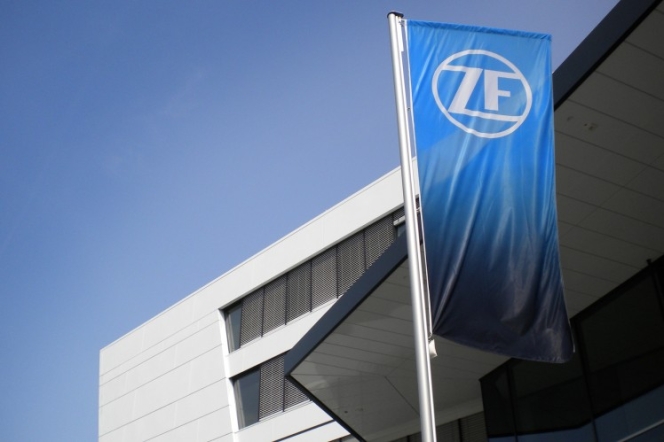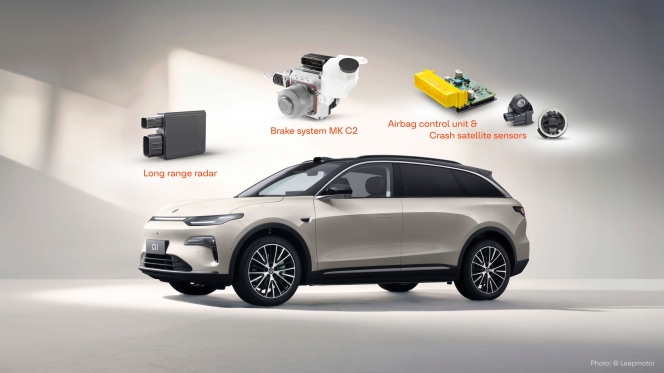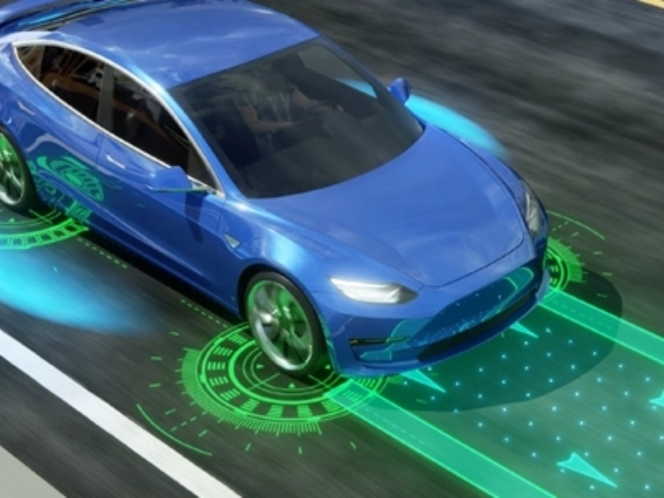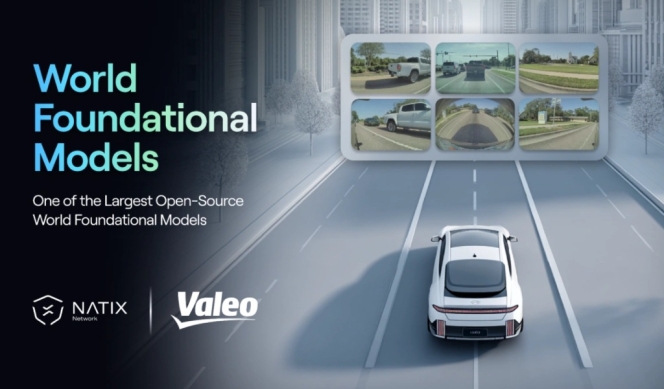AI-Based Visual Inspection: Enhancing The Automotive Industry
- By Juili Eklahare
- May 14, 2022

Artificial intelligence (AI) is an evolving technology that is still growing, but it is undoubtedly getting better.
For all we know, factories might not even need lights 20 years later, because most of them will be operated by AI. We see a lot of R&D happening within the AI framework, giving good results. Besides, we see newer frameworks coming in.
AI-based visual inspection, too, has been growing by leaps and bounds, reshaping automotive inspection. It helps examine detailed defects in vehicles, providing automotive OEMs the opportunity for accuracy and cost-savings.
One such company focusing on AI-based visual inspection is Lincode Labs, whose AI-backed visual inspection solution, Lincode Visual Inspection System (LIVIS), is its current focus. The company was started with complete research and understanding of the top challenges that manufacturers globally face. After interviewing close to 100 customers, 86 percent of them said that quality inspection happens to be their biggest challenge.
“We were intrigued by this and went to various quality inspection people and identified the technology they were using,” says Rajesh Iyengar, Founder and CEO, Lincode Labs, and goes on, “We went on to find out that the technology hasn’t changed for two decades and there were a lot of false calls in it. That’s when Lincode stepped in and built a product around specific challenges focused on the automotive industry.”
Automotive OEMs, too, look at specifically reducing these false calls and improving productivity, which Lincode has helped solve through its AI-backed visual inspection solution. “The industry standards were 150 to 200 false calls per million inspections. So, in our case, we are doing it in zero to four parts per million,” Iyengar cites.
Iyengar further reveals that due to this, 80 percent of their customers are repeat orders. “That’s because they are completely happy with the inspection process and the way the inspection is automated,” he mentions.
LIVIS
Traditional vision systems cannot catch up with AI, as Iyengar says. He avers, “LIVIS stands out because we have built it as a platform. The scalability becomes easier if you’re going to deploy it across multiple factories and locations. But also, the foremost important thing is that it is completely made as a product. Thus, AI is commoditised. With the LIVIS platform, we can bring the cost and time to deployment down.”
Lincode’s role in the automotive industry
What’s interesting is that even if Lincode caters to the manufacturing industry as a whole, it first addressed the automotive industry. The company researched the market size of various manufacturing companies and the automotive industry took the top spot, with close to USD 542 billion of global value.
“We started with the automotive industry but pivoted later,” Iyengar tells us and continues, “So, instead of looking at just the automotive or any other industry, we turned our attention to steel, metal, plastic, glass etc. We basically went to the surface and saw how steel and metal are produced today. Whether it’s a CNC machining or forging or casting process, these are major processes used for any industry across the globe involving steel and metal. We understood that steel and metal are dealt with in the same way globally. Therefore, it made sense to go to the surface and into these kinds of defects specifically, and then generalise that and start building a model towards it. This, plus making AI as a product, has made deployment easier across the globe.”
R&D centre in Bengaluru
Lincode recently opened a new R&D centre in Bengaluru, which also has a significant role to play in deploying the company’s solution across the world.
Stressing on the fact that evolving models are important in AI, Iyengar states, “It’s a continuous process; it’s not that you just build a model and you’re set. We have a big roadmap in the product development, and the Bengaluru R&D centre is going to play a major role in that. We are going to conduct deep research with various data collected across the globe and do various testing with that.”
Staying ahead
What’s more, Lincode recently closed a funding round in December last year. Catering to a constantly evolving industry like the automotive, Lincode, too, strives to make sure that its visual inspection solution stays ahead and is put to use. “There are about more than 600 parts in a car and each part is segregated – like the structure, wiring, engine components etc.,” Iyengar shares and continues, “These segregations are made so that we can target the sector of the product. For example, when it comes to engine blocks, there is a specific model with a huge data set around engine blocks. This is how we stay ahead of competition.” Iyengar also adds that their trials with various use cases made them understand that inspection alone is not important but also the way the inspection is done.
Essential skill sets for AI vision systems
Leveraging AI-based visual inspection solutions in the automotive industry is bound to increase productivity, and the cost of labour will also come down because of automation. “Today, most manufacturers use secondary inspection, which can be cut off straight away. This will improve their productivity and also reduce the risk of delays,” Iyengar enlightens.
Moreover, AI vision systems come with their share of essential skill sets to bring out the best in the automotive industry. Iyengar states that, in general, skilling is required for the factory people. “This could be at various levels,” he puts across and adds, “It could be for the operators, the IT administrator or even the software development team. Hence, deep training is required, which can be somewhat cumbersome because it could be a bit challenging for the operator. So, an IT person might be needed in order to help the operator every time there is a downtime.”
Covid-19 and AI-backed visual inspection
Such training or skills could certainly come in handy, because Iyengar claims that the need for AI-backed visual inspection solutions in the automotive industry has increased since the Covid-19 pandemic. “Unplanned shutdowns happened during Covid, because of which employees could not report and manufacturing could not continue properly,” he responds and adds, “Hence, a lot of investments are happening because of this. In fact, even now, a lot of employees are still not reporting and the labour problem has become global. It has become tough to get skilled workers. This has led to the adoption of autonomous manufacturing for automotives, where AI is going to play a big role.”
Meeting industry requirements
For an industry that is an economic force globally, AI-based visual inspection is certainly meeting the high-quality requirements of the customers of the automotive sector. Plus, we already see companies like Volvo using the technology. Safety surpasses any requirement, and this requirement can be fulfilled if quality is top-notch. And quality will be at its best if automotive manufacturers can perform production quality inspections in the most efficient way. (MT)
ZF, BMW Sign Long-Term Supply Agreement For Drive Technologies
- By MT Bureau
- February 03, 2026

German tier 1 supplier ZF Friedrichshafen and the BMW Group have entered into a long-term supply agreement for passenger car drive systems. The contract, valued at several billion euros, extends until the late 2030s.
The agreement focuses on the supply and continued development of the 8-speed automatic transmission (8HP). The partners aim to support low-emission mobility and maintain technological flexibility during the industry transition.
A central component of the partnership is the technical evolution of the 8HP transmission kit to meet the requirements of electrified drives. The development will focus on increasing efficiency and performance for future vehicle concepts.
Mathias Miedreich, CEO of ZF, said, “Together with BMW, we are sending a strong signal for innovation, efficiency, and sustainability in an industry undergoing dynamic change. This agreement highlights the strategic importance of our 8-speed automatic transmission as a key technology for the transformation of drive systems.”
The duration of the contract provides both ZF and BMW with planning stability in a changing market. ZF aims to strengthen its position as a system supplier while reducing risks through close collaboration with the carmaker.
Sebastian Schmitt, Head of ZF's Electrified Drive Technologies division, explained, “The new agreement with BMW shows how important long-term planning horizons are for technological advancements. It creates clarity and stability for both companies and enables us to align the next generation of the 8HP specifically toward efficiency, performance, and long-term viability.”
Leapmotor Selects Aumovio For Safety Technologies
- By MT Bureau
- February 02, 2026

Aumovio has entered a supply agreement with Chinese electric vehicle manufacturer Leapmotor to provide safety components for the carmaker’s B and C platforms.
Several models within Leapmotor’s B platform now utilise Aumovio's long-range radar, electric parking brake and airbag control unit (ACU). Models on the C platform, including the C10, C11 and C16 SUVs, feature the latest generation of the MK C2 one-box brake system, alongside the long-range radar and ACU.
The project was completed with a development cycle approximately one-third shorter than traditional automotive timelines. Aumovio attributed its speed to ‘local-for-local’ strategy in China, where the company operates 20 sites and employs around 10,000 staff. In 2024, Aumovio held a 14 percent share of market revenue in the region.
The supplied technologies include:
- MK C2 Brake System: A unit combining the master cylinder, electronic brake system, and brake booster. It is produced locally in Shanghai.
- Long-Range Radar: A sensor with a detection range of up to 280 metres, used for driver assistance across both platforms.
- Airbag Control Unit (ACU): Integrated with crash satellite sensors, these components are manufactured in Changchun.
Boris Mergell, Head of the Safety and Motion business area at Aumovio, said, “Pairing ‘China speed’ with ‘German quality’ technologies helped us to support a rapid roll-out with our latest safety technologies. This underscores Aumovio’s course towards an adaptive powerhouse that works flexibly and closely with customers to innovate. It also shows that we continue to strengthen our customer relationships in the important market China.”
The partnership supports Leapmotor’s international presence. The B10 and B05 models, which feature Aumovio's ACU and radar technology, were showcased at the IAA 2025 in Munich as part of the manufacturer's European entry.
LTTS Secures Multi-Year Deal From Automotive OEM For Engineering And R&D
- By MT Bureau
- January 28, 2026

Bengaluru-headquartered ER&D company L&T Technology Services (LTTS) has announced a multi-year engagement within its mobility segment from an automotive manufacturer. The agreement involves software, connectivity and digital engineering services across vehicle technology domains. This win follows the company’s investments in R&D labs and mobility infrastructure designed for programs with global manufacturers.
The engagement covers mobility engineering capabilities, including embedded systems, digital platforms, verification and validation, cloud integration and cybersecurity. LTTS intends to use its engineering expertise and delivery frameworks to support the customer's technology roadmap.
At present, LTTS operates 22 design centres and 100 innovation labs globally.
The agreement strengthens the partnership between LTTS and the automotive manufacturer in the area of mobility engineering. The company provides design, development, and testing services across the mobility, sustainability, and tech segments.
Alind Saxena, Executive Director and President, Mobility and Tech at L&T Technology Services, said, “We are proud to deepen our partnership with the valued customer through this strategic engagement. LTTS brings together domain-led engineering, secure development practices and excellence in global delivery to accelerate the future of premium mobility. The win reflects the trust placed in our teams and our commitment to delivering world-class engineering at scale”.
Valeo And NATIX Network Partner To Develop Open-Source World Foundation Model
- By MT Bureau
- January 25, 2026

French technology company Valeo and NATIX Network have announced a partnership to develop a multi-camera World Foundation Model (WFM). The project combines Valeo’s research in artificial intelligence and generative modelling with NATIX’s decentralised physical infrastructure network (DePIN) to create an open-source platform for autonomous driving and robotics.
The initiative aims to move beyond perception-based models by creating a system capable of predicting future states and reasoning about physical interactions in a four-dimensional environment. The model will be trained using NATIX’s data network, which has collected 600,000 hours of video data across the US, Europe and Asia over seven months. This data provides the multi-camera inputs necessary for the spatial perception required by autonomous vehicles and robots.
The partnership builds upon Valeo’s existing open-source frameworks, VaViM (Video Autoregressive Model) and VaVAM (Video-Action Model). While these frameworks were previously trained primarily on front-camera datasets, the integration of NATIX’s multi-camera network expands the AI’s field of vision to 360 degrees.
Under the open-source framework, the partners will release models, datasets and training tools. This approach is intended to allow the research community to fine-tune models and benchmark physical AI across various driving conditions and geographic regions. The collaboration seeks to accelerate the deployment of end-to-end AI models by learning from real-world edge cases captured by vehicles in operation.
Marc Vrecko, Chief Executive Officer, Valeo’s Brain Division, said, “Since our creation in 2018, Valeo’s AI research center has been at the forefront of AI research in the automotive industry, especially in the fields of assisted and autonomous driving. Our goal has always been to advance mobility intelligence safely and responsibly. By combining Valeo’s generative world modeling research expertise with NATIX’s global multi-camera data, we are accelerating both the quality and the accessibility of next-generation end-to-end AI models, enabling the research community to build upon strong open models.”
Alireza Ghods, CEO and Co-Founder, NATIX, added, “WFMs are a once-in-a-generation opportunity — similar to the rise of LLMs in 2017–2020. The teams that build the first scalable world models will define the foundation of the next AI wave: Physical AIs. With our distributed multi-camera network, NATIX has a clear advantage of being able to move faster than large OEMs.”







Comments (0)
ADD COMMENT